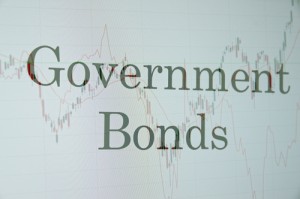Municipal Bond Rates
This article discusses different types of United States bonds. We’ll talk about how US Bonds are different and how they are used.
Municipal Bonds
A municipal bond is also sometimes referred to as a “muni”. It is a type of bond that is exempt from most state and local taxes, and that is always exempt from federal taxes. State and local tax emeptions vary according to what state you live in. Municipal bonds are issued by the state, the county, or the municipality to finance capital expenditures. A capital expenditure is a “project”. Say the roads need to be repaved, or the school needs to be improved. Those are examples of what a municipal bond would be used for. The average person does not use municipal bonds. They are used by districts and municipalities.
Treasury Bonds
Treasury bonds are different from municipal bonds. Anyone can purchase a treasury bond. Treasury bonds are excellent for investing. Say you want to ensure you have a healthy retirement fund. A treasury bond can help you to make that happen. Many people use treasury bonds as “nest eggs” for the future. Anyone can purchase a treasury bond. Many people do so to improve their investment portfolios.
US Treasury Bonds
US treasury bonds have a term of up to 30 years. Every six months a US treasury bond will pay interest. The interest will be paid until the bond is mature. Interest income is not subject to state or local taxes, but IS subject to federal taxes. So, each year when you file your taxes any income that you have received from your US treasury bond must be reported on federal taxes or you could have problems with the IRS.
US Treasury Rates
The Untied States treasury rates are ever changing. You can learn more about US treasury rates at The Department of the Treasury’s Data Center. Rates vary daily. Some days rates will be higher, and you will earn more via interest. Other days rates could drop and you could be in the red. You never can tell. Every investor needs to carefully re-search before purchasing bonds of any type. Each investment can either be a blessing or a loss. Many investors pull out when rates begin to drop.
United States Treasury
The United States Treasury is a department of the United States Government. They’re the ones who run the mint. All currency in the United States comes from and essentially belongs to the United States Department of Treasury. They are the “money” department of the United States government. You can visit the treasury department at Treasury.gov. There you can learn more about the Department of Treasury itself, about the IRS, and about US bonds. Everything you need to know about treasury rates, different types of bonds, interest rates, term lengths, etc. can be found on their website.
Treasury Rates
At Treasury.gov you can also learn more about treasury rates. Treasury rates vary according to the term of the bond. They can go up, or they can go down depending on the market. Fixed rate bonds ensure that your interest rates will always remain the same regardless of how the daily rates fluctuate. If your bond does not have a fixed interest rate you may be putting yourself at risk. When the rates go down for your specific type of bond you will lose interest income. On the other hand you could also benefit by not choosing a fixed rate bond. When the treasury rates go up your interest income will increase. A fixed rate bond is a great way to play it safe but it also means that even when the treasury rates go up your interest income will remain the same. Choosing which type of bond is right for you can be difficult because of that. You never can tell what the rates will do next. They may rise, they may fall. That is another reason why it is so important to do your research. Look into the history of the rates for the specific type of bond you are planning to purchase…before you purchase it.
Government Bonds
There are several different types of United States government bonds available. Some of the government bonds are “fixed rate”. This means that the amount of interest that they generate each year is “fixed”, or that it will always be the same every year until the bond is mature. A bond that is not fixed has interest rates that are subject to change. This could be a good thing, or a bad thing depending on how the rates fluctuate. If rates go down you will lose interest income, but if they go up you will gain income. A fixed rate bond does not allow you the opportunity to receive that extra income when rates go up. However, it does ensure that you will not lose income if the rates go down.
Conclusion
This article briefly skims over the definitions of different types of bond, of interest rates, and of term lengths. If you are interested in investing it is essential that you do a lot of research regarding each of the terms in bold that we’ve highlighted here. The website Treasury.gov is the actual United States Department of Treasury website. There you will find tons of valuable, useful formation that will help to direct you in making your decision to purchase the type of bond that is right for you. There are so many options that it can be overwhelming at first. However, the more educated you become on bonds and how the treasury works the easier it gets. There are millions of people who invest via bonds. Some have created substantial incomes through their investments. Others have retired on the interest they have collected over the years.
 Follow
Follow